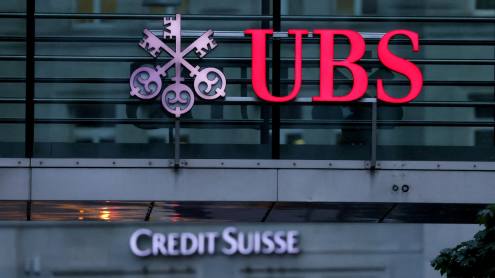
“Commerzbank already had a successful business model before the merger. On a standalone basis, our customer base grew by more than 500,000 new clients in 2008. With the acquisition of Dresdner Bank, we have almost doubled our share in retail and small business banking, to serve about 11 million retail clients.”
The combined entity has about 1540 branches nationwide, which the management board aims to reduce to 1200 by 2012. Whether this process will begin immediately remains to be seen – job losses in an election year at a bank that now has a 25% government stake could become politically contentious. Mr Kassow intends to tread carefully. “We will closely examine every single case, taking into account the development of the region, administrative and communal conditions and natural surroundings – obviously it would not make sense, for example, to merge branches located on opposite riverbanks,” he says.
The plan is for all Dresdner branches and products to be rebranded, creating a uniform Commerzbank brand. However, Mr Kassow says this will have to wait until the information technology infrastructure has been integrated, a substantial process that is due for completion in the fourth quarter of 2010. “For now, we are beginning to familiarise Dresdner Bank clients with the Commerzbank brand. Just two weeks after the completion of the merger in January, we have launched a joint product, available to clients of both banks. It is accompanied by a campaign assuring Dresdner Bank’s clients that Commerzbank will make necessary changes as convenient for them as possible,” he says.
One particularly valuable operation purchased by Commerzbank from a retail viewpoint is the private wealth management (PWM) division, headed by Dresdner veteran Anton Simonet. This unit was still growing nationally and internationally, even as the Dresdner Kleinwort investment bank struggled (see interview with Michael Reuther). As recently as November 2008, after the merger deal had been signed, Dresdner PWM opened its first office in Dubai. “Our new high-net-worth division will be the market leader in wealth management in Germany, based on the number of clients. More than 40 German and 30 international locations will offer individual financial solutions to our clients,” says Mr Kassow.
Another notable feature of the deal was that Allianz will replace Generali as Commerzbank’s exclusive distribution partner for insurance products. According to Fitch Ratings analyst Tim Ockenga, the Generali deal “has not been successful”, but Mr Kassow is hopeful that the Allianz partnership will be beneficial. “As one of the global leading service providers and market leader in insurance in Germany, Allianz is a natural partner for us. Our partnership with this well-known brand underlines the unique choice of high-end financial and insurance solutions the new Commerzbank presents to its clients, suitable for every situation in life,” he says.
In addition, Allianz asset management services (which purchased Commerzbank unit cominvest as part of the deal) will have preferred partner status. Mr Kassow says: “Our clients will benefit from the expertise of Allianz Global Investors, one of the world’s top five asset management groups. With this new preferred asset management partner, we will offer a comprehensive global portfolio of investment products for all major asset classes and investment styles.”











